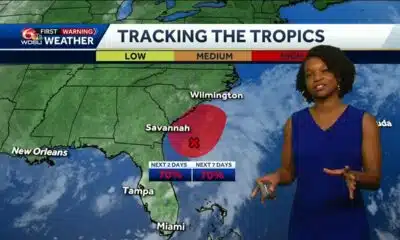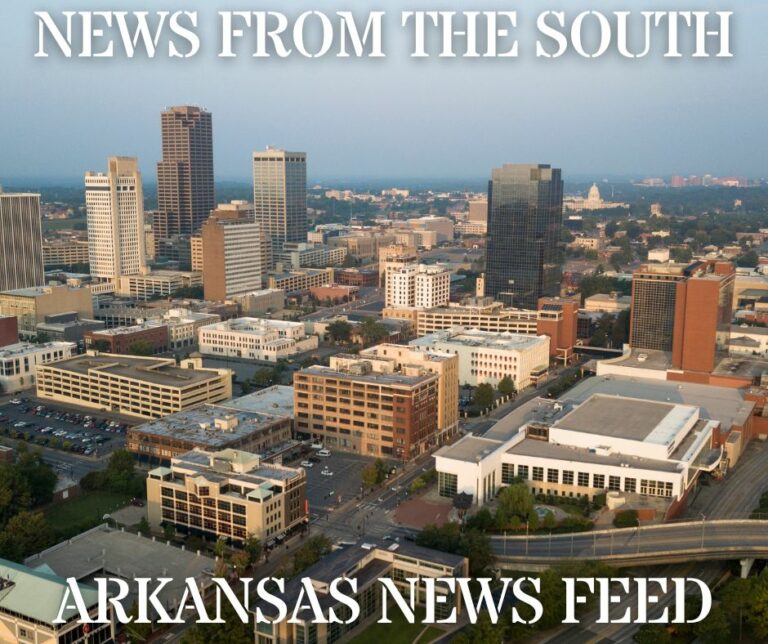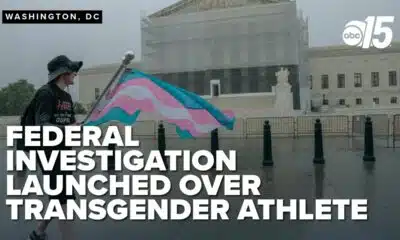News from the South - West Virginia News Feed
Christian’s Morning Forecast: Nice Start Before Another Rainy Week
SUMMARY: The weather for the upcoming week will start off nice with mostly sunny skies and a high of 76°F. A low-pressure system in the Dakotas will bring rain starting Tuesday night, continuing through Friday, with possible severe weather, including winds and hail. Rainfall amounts could reach up to one to two inches in some areas. The weather will be cooler than average in the Ohio Valley and parts of the North Central Plains, while warmer conditions are expected in Florida and on the West Coast. The weekend will bring some drier conditions, though nighttime showers may return by Sunday.
FOLLOW US ON FACEBOOK AND TWITTER:
https://facebook.com/WOAYNewsWatch
https://twitter.com/WOAYNewsWatch
News from the South - West Virginia News Feed
Practice fireworks safety this Independence Day
SUMMARY: With Fourth of July approaching, Beckley is filled with firework tents, but safety is crucial. Beckley Fire Station 1 advises setting off fireworks only in clear, open areas away from buildings, people, vehicles, and flammable materials. Always read instructions before use, understand the range and effects, and keep children away from fireworks. Never relight a dud firework; wait 10 to 20 minutes, then soak and safely dispose of it. Use long-nose lighters to avoid burns, and never hold or point fireworks unless designed to be held, like sparklers. For maximum safety, consider leaving fireworks to the professionals.
There’s no shortage of fireworks tents all over Beckley in anticipation of July 4th. If you plan to purchase any, you must know how to properly and safely handle the sparklers.
~ Newswatch reporter Jillian Risberg (https://www.facebook.com/JillianRisTV).
FOLLOW US ON FACEBOOK AND TWITTER:
https://facebook.com/WOAYNewsWatch
https://twitter.com/WOAYNewsWatch
News from the South - West Virginia News Feed
Body found in Culvert identified
SUMMARY: Police responded to a report of a body found in a culvert along the 1200 block of MacCorkle Avenue at about 4 o’clock Tuesday afternoon. Authorities do not suspect foul play at this time, but the investigation is still ongoing. State police have identified the body as a man found in the area of Twelvepole. Further details have not been released as the state police continue their investigation into the circumstances surrounding the discovery. The community is urged to remain patient as officials work to conclude the inquiry.
Body found in Culvert identified.
For more Local News from WSAZ: https://www.wsaz.com/
For more YouTube Content: https://www.youtube.com/channel/UCrcuU0JXXy8oIBqEB13mrwA
News from the South - West Virginia News Feed
Judge denies bail for 'Diddy' after verdict clears him of top charges in sex crimes case
SUMMARY: The judge denied bail for hip hop mogul Sha Denny Combmes ahead of his sentencing, citing his disregard for the law and violence. Combmes was found guilty of two counts of transportation to engage in prostitution but not guilty of sex trafficking and racketeering conspiracy. The jury heard testimony from 34 witnesses, including former girlfriends Cassie Ventura and a woman known as Jane, who described coercion into sexual encounters and domestic abuse. Prosecutors aim for incarceration, with potential sentences up to 20 years. While Combmes and his defense celebrated acquittals on serious charges, the judge rejected bond requests, scheduling sentencing for October 3, with possible rescheduling.
A jury on Wednesday reached a unanimous verdict on all counts in Sean “Diddy” Combs’ sex trafficking trial in New York City on the third day of deliberations.
#DiddyTrial #SeanCombs #Racketeering #SexTrafficking #CourtDeliberations #ManhattanCourt #JudgeSubramanian #CassieVentura #BreakingNews #CourtroomDrama #CelebrityTrial #JusticeSystem #FederalCase #LegalNews #DiddyDeliberations
_________________________________________
For the latest local and national news, visit our website: https://wchstv.com/
Sign up for our newsletter: https://wchstv.com/sign-up
Follow WCHS-TV on social media:
Facebook: https://www.facebook.com/eyewitnessnewscharleston/
Twitter: https://twitter.com/wchs8fox11
Instagram: https://www.instagram.com/wchs8fox11/
-
News from the South - South Carolina News Feed6 days ago
Federal investigation launched into Minnesota after transgender athlete leads team to championship
-
News from the South - Tennessee News Feed6 days ago
Democratic resolution to block military action in Iran fails to advance in US Senate
-
The Center Square5 days ago
U.S. Senate prepares for passage of One Big Beautiful Bill Act | National
-
News from the South - Louisiana News Feed5 days ago
Water company hiked sewage rates in Lafayette to state’s highest
-
News from the South - Tennessee News Feed6 days ago
“Choose how you love:” Nashville Pride 2025
-
News from the South - Arkansas News Feed5 days ago
Thousands celebrate pride, progress at the 2025 NWA Pride Parade
-
News from the South - Georgia News Feed7 days ago
Skydiver dies after mid-air incident | FOX 5 News
-
News from the South - Virginia News Feed6 days ago
Senate Republicans work through the weekend to pass Trump’s One Big Beautiful Bill









































